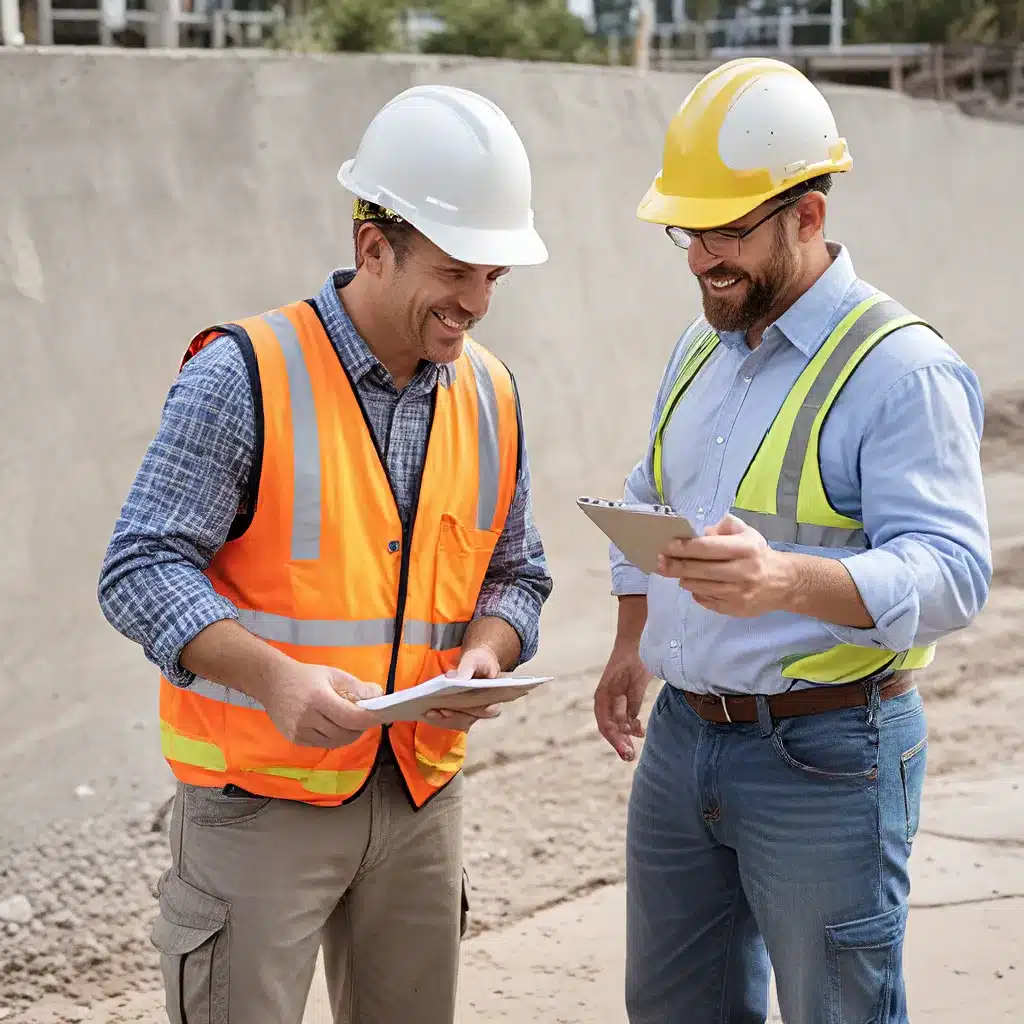
Understanding the Importance of Communication in Concrete Services
Effective communication is the foundation of any successful concrete contracting project, whether it’s a residential driveway installation or a large-scale commercial building renovation. As a concrete contractor in Kansas City, your ability to clearly convey information, manage client expectations, and foster strong relationships can make all the difference in delivering high-quality work and ensuring customer satisfaction.
In this comprehensive guide, we’ll explore the key aspects of communication that are essential for concrete contractors in the Kansas City area. By mastering these skills, you can elevate your services, build a reputation for excellence, and cultivate long-term partnerships with your clients.
Establishing Clear Expectations
Establishing clear expectations is the first and most crucial step in any concrete project. From the initial consultation to the final walkthrough, effective communication ensures that both you and your client are on the same page regarding the scope of work, timeline, and project milestones.
Start by scheduling a detailed on-site meeting with your client. This allows you to thoroughly assess the project, identify any potential challenges, and discuss the specific requirements and preferences of the client. During this conversation, be sure to:
-
Clearly explain the project timeline: Provide a realistic estimate of the start and completion dates, as well as any intermediate milestones. This helps manage the client’s expectations and ensures that they are prepared for the progress of the work.
-
Outline the scope of work: Provide a detailed breakdown of the tasks involved, including any necessary demolition, site preparation, concrete pouring, and finishing. Ensure that the client understands the extent of the project and any potential complexities.
-
Discuss material selection: Educate your client on the different concrete mixes, finishes, and customization options available. Highlight the benefits and drawbacks of each choice, and help them make an informed decision that aligns with their budget and aesthetic preferences.
-
Address potential challenges: Identify any potential issues, such as site access, underground utilities, or weather conditions, and discuss how you plan to mitigate them. This demonstrates your proactive approach and reassures the client that you are prepared to handle any obstacles.
By establishing clear expectations from the outset, you can build trust with your clients and set the stage for a successful project.
Effective Communication During the Project
Once the project is underway, maintaining effective communication is crucial to ensure a smooth and efficient process. Regular updates, prompt responses to inquiries, and proactive problem-solving can all contribute to a positive client experience.
Schedule regular check-in meetings: Establish a schedule for periodic meetings or phone calls with your client. This allows you to provide progress updates, address any concerns, and discuss any changes or adjustments that may be necessary.
Document all communications: Keep detailed records of all conversations, emails, and decisions made throughout the project. This helps ensure that everyone is on the same page and provides a reference point in case of any misunderstandings or disputes.
Respond promptly to inquiries: Make it a priority to respond to client calls, emails, or messages in a timely manner. This demonstrates your commitment to their project and helps maintain a positive working relationship.
Proactively address issues: If you encounter any challenges or unexpected complications during the project, communicate them to the client immediately. Provide a clear explanation of the issue, along with proposed solutions and any adjustments to the timeline or budget. This approach helps to build trust and manage expectations effectively.
Encourage client involvement: Invite the client to visit the job site periodically to observe the progress and provide feedback. This not only keeps them engaged but also allows them to voice their concerns or suggestions in a timely manner.
By maintaining open and transparent communication throughout the project, you can ensure that the client is well-informed, reassured, and confident in your ability to deliver a successful outcome.
Finalizing the Project and Collecting Feedback
As the project nears completion, effective communication takes on an even greater importance. This is the time to finalize the details, address any remaining concerns, and collect valuable feedback from the client.
Conduct a thorough walkthrough: Schedule a final walkthrough with the client to review the completed work. Encourage them to provide feedback and address any minor issues or adjustments that need to be made.
Explain the maintenance requirements: Provide the client with clear instructions on the proper care and maintenance of the new concrete surfaces, including recommendations for cleaning, sealing, and any necessary repairs.
Collect feedback and testimonials: At the end of the project, ask the client to provide feedback on their overall experience working with your company. This feedback can be used to improve your services and showcase your commitment to customer satisfaction on your website or in your marketing materials.
Maintain a positive relationship: Even after the project is complete, continue to stay in touch with your client. This can involve sending periodic updates on the condition of the concrete, offering maintenance tips, or simply checking in to see if they have any additional needs.
By prioritizing communication throughout the entire project lifecycle, you can demonstrate your professionalism, build lasting relationships, and position your concrete contracting business as a trusted partner in the Kansas City community.
Conclusion: The Power of Effective Communication
Effective communication is the cornerstone of a successful concrete contracting business in Kansas City. By establishing clear expectations, maintaining open and transparent communication during the project, and finalizing the details with care, you can build a reputation for excellence and cultivate long-term partnerships with your clients.
Remember, the key to effective communication is to listen, understand, and respond in a way that meets the unique needs and preferences of each client. By mastering these skills, you can set your concrete contracting business apart from the competition and continue to grow your presence in the Kansas City market.
So, embrace the power of communication, and let it be the foundation for your success as a concrete contractor in Kansas City.

